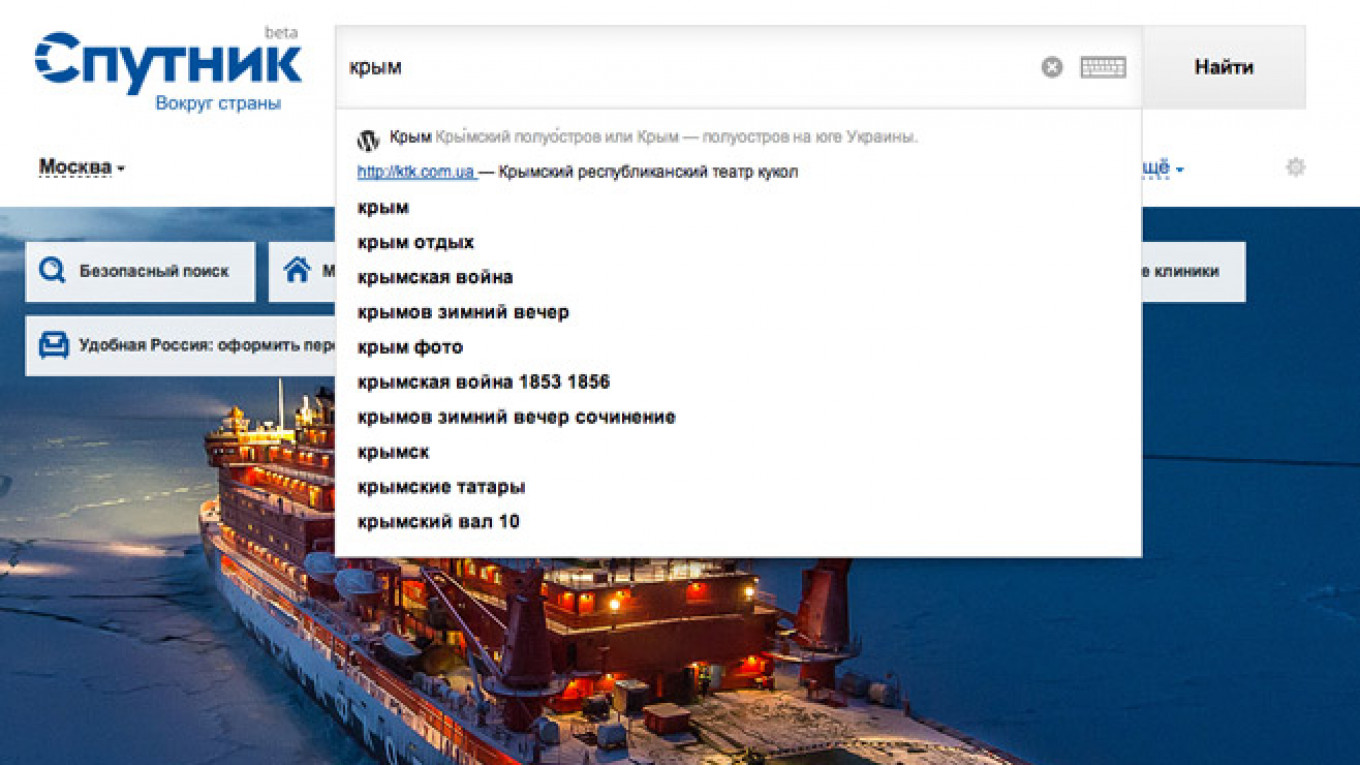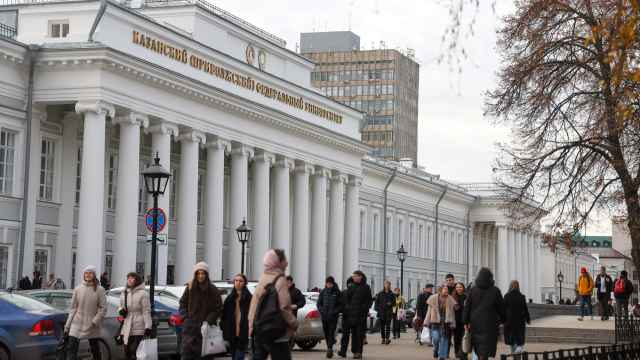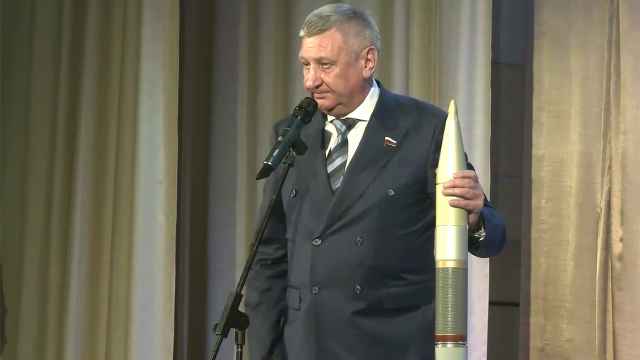Special report for MT
On May 22, state-owned telecoms company Rostelecom launched the first version of its new search engine, Sputnik. A week later, the engine, which some analysts see as the latest move in the Kremlin's ongoing crusade against the uncontrolled and subversive Internet, has fallen flat.
On the day that Sputnik launched at www.sputnik.ru, it clocked 141,800 searches, according to data from internet tracking service LiveInternet.ru cited by business daily Kommersant. Not bad for the early version of a government-sponsored service that hopes to compete with Google and local rival Yandex — the two largest search engines in Russia. However, on Thursday that number was down to 16,500. To put this number in perspective, at the end of its first week, Sputnik enjoys .01 percent of Russia's search engine market, according to LiveInternet.ru. By contrast, Yandex has 62 percent and Google 28 percent. Mail.ru, another big Russian Internet company, is distant third with 7 percent.
To be fair, Sputnik is not yet a finished product. It is currently in its "open beta" phase of development, the point at which the service is useable but not yet 100-percent finished. The idea of an open beta is that you allow the intended user to interact with the service to help you identify flaws in the system prior to its official launch.
And Sputnik is not aiming to compete directly with its rivals. Instead, the engine hopes to differentiate itself from Yandex and Google by tailoring its results toward "social services," such as locating medication at the local pharmacy, or comparing gasoline prices at nearby gas stations.
The Moscow Times reviewed Sputnik to get a better idea of how the engine stacks up to its competitors. In an attempt to be as scientific as possible, we ran identical Russian-language searches through all three search engines — Sputnik, Yandex and Google — ensuring that the cache was cleared before each query was submitted and that we were logged out of Google and Yandex's services. By doing so, we avoided tailored search results from their advanced algorithms and were able to compare the results as objectively as possible.
Flashpoints and Drug Stores
On Sputnik's launch day, screenshots circulated on Twitter of an obvious bug in the system. Crimea — which became ground zero in a standoff between Russia and the West when Moscow annexed the region from Ukraine in March — was described as "a peninsula in southern Ukraine" in a drop-down menu on the website's main page when users entered its name. This made "Krym," the Russian word for Crimea, a natural launch pad for our Sputnik adventure. On Friday, a full week after the service's launch, Crimea is still described as a part of Ukraine on the drop-down menu on the main page's search bar.
The search revealed a few differences between Sputnik and its competitors, Yandex and Google. While all three engines had Crimea's Wikipedia page as the top result, Sputnik filled the rest of the first page of search results with Crimean tourism sites, without listing a single news article. However, Sputnik appears to be separating news from search results, instead aggregating them in a news window at the top of the page. Yandex's results were a little more diverse, featuring a mix of news and tourism sites. Google favored news about Crimea entirely — including the Crimean news portal of the U.S. government sponsored Radio Free Europe/Radio Liberty, a Cold War-era news service that used to broadcast forbidden information across the Iron Curtain.
The next search we ran for Russia's most influential opposition figure, Alexei Navalny, who gave the establishment a scare in last year's Moscow mayoral elections and has been under house arrest since March. All three services featured nearly identical results in the top five, and Sputnik outdid the pack by placing Navalny's now-blocked LiveJournal weblog, navalny.livejournal.com, as its number one result.
What is more, when searching for "the party of crooks and thieves," Navalny's famous out-down of Russia's ruling United Russia political party, Sputnik lists United Russia's official website as its top result.
For our next search we went looking for pharmacies, since Sputnik markets itself as a "social service" based platform that will help Russian internet users locate everyday practical necessities. Eventually the service hopes to provide information on where to find specific drugs and the price of gas at specific gas stations, but as the service is still in its beta stage this does not appear to be an active feature at this moment.
When typing "Apteka," the Russian word for pharmacy, into the three search engines, they all listed drug stores in the area — though Sputnik did give us one pharmacy in Novosibirsk, 3,400 kilometers east of Moscow — and their map services pinpointed their locations. On this count, Sputnik does not do anything that its primary competitors, Yandex and Google, do not already do well.
Not Evil, Just Inept
Sputnik's news page does a decent job of providing an overview of the relevant news of the day, similar to the way it is done by Google and Yandex. Where Sputnik is obviously underdeveloped is in searching for specific news items — a task that is significantly more complex under the hood than providing an overview of the day's news.
When running a search for Right Sector — a paramilitary group in Ukraine that Russian state media have relentlessly singled out as a fascist threat — on all three engines, Sputnik did not list anything about the group written after April. This is curious, considering that on Friday the Federal Security Service, the successor agency to the Soviet era-KGB, detained members of Right Sector in Crimea, who were allegedly planning terrorist attacks throughout the region on May 9, during celebrations marking the anniversary of victory in World War II. Google and Yandex shared many stories covering this development from a wide spectrum of sources.
Sputnik's news search and general search were unable to locate a recent investigative report by Reuters titled "Comrade Capitalism," which looked into illicit financing schemes by top officials close to President Vladimir Putin. Yandex and Google both listed a direct link to the Reuters article as their number one result, and multiple blog posts and references to the piece in subsequent results. Sputnik had nothing.
But in the end, it does not seem that Sputnik is filtering news searches. It is simply doing a terrible job of finding information on the internet.
Were the engine to be filtering, it would feature prominently articles that lean toward the government's position — for example that Ukraine is on the verge of slipping into civil war and neo-fascism. This is not the case. If anything, Sputnik's search algorithms are simply underdeveloped and not capable of competing with those of Yandex and Google.
And in Sputnik's chosen field, offering targeted information on local services, the engine is also unable so far to outdo its competitors. Sputnik is still in the beta phase, and may yet manage to innovate. But as the collapse in user numbers shows, Russia's state search engine has a mountain to climb.
See also:
Russia Presents New State-Owned Search Engine Called Sputnik
Contact the author at bizreporter@imedia.ru
A Message from The Moscow Times:
Dear readers,
We are facing unprecedented challenges. Russia's Prosecutor General's Office has designated The Moscow Times as an "undesirable" organization, criminalizing our work and putting our staff at risk of prosecution. This follows our earlier unjust labeling as a "foreign agent."
These actions are direct attempts to silence independent journalism in Russia. The authorities claim our work "discredits the decisions of the Russian leadership." We see things differently: we strive to provide accurate, unbiased reporting on Russia.
We, the journalists of The Moscow Times, refuse to be silenced. But to continue our work, we need your help.
Your support, no matter how small, makes a world of difference. If you can, please support us monthly starting from just $2. It's quick to set up, and every contribution makes a significant impact.
By supporting The Moscow Times, you're defending open, independent journalism in the face of repression. Thank you for standing with us.
Remind me later.






